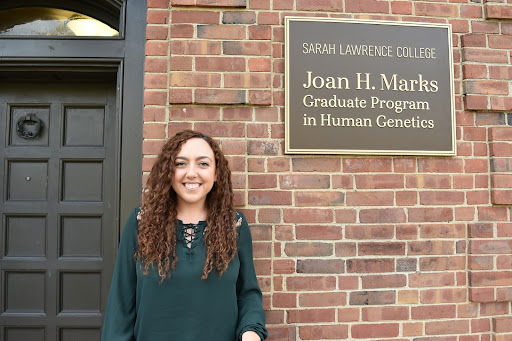Assistant Program Director
BS, University of California, Los Angeles. MS, Sarah Lawrence College. After earning her MS, Michelle began working as a clinical prenatal and cancer genetic counselor at Montefiore Medical Center in the Bronx while supervising Sarah Lawrence genetic counseling students, medical students, residents, and medical fellows. She became a course instructor in 2020 and later joined the program faculty in 2021 to pioneer the Genetic Counseling Education Fellowship.
Previous Courses
MS Human Genetics
Advanced Human Genetics
Graduate Seminar—Fall
7305
The Advanced Human Genetics course provides students with a foundation in human genetics in preparation for their clinical training and other coursework in the genetic counseling program. The Advanced Human Genetics course is organized into lectures, self-study activities, and team-based learning. The team-based learning and other student-driven activities enable students to apply in a clinically relevant way information presented in the lectures and readings.
Faculty
Fundamentals of Genetic Counseling 1
Graduate Seminar—Fall
Fundamentals of Genetic Counseling 1 introduces students to skills necessary for genetic counseling. The course is structured around key components of a genetic counseling encounter. Readings provide foundational knowledge of relevant concepts and class discussions encourage comparison of different perspectives and applications. Course instructors demonstrate each skill and students then engage in skill development through role-play, peer feedback, and self-assessment.
Faculty
Fundamentals of Genetic Counseling 2
Graduate Seminar—Spring
Building on the skillset of Fundamentals of Genetic Counseling 1, Fundamentals of Genetic Counseling 2 develops skills relevant to clinical risk assessment. By traversing the path from calculations to care, students will understand that risks are composite predictions for future disease, assessment of those risks enables a preventive approach to healthcare, and outcomes of risk assessment are mediated by risk perceptions. Course activities include discussion, small group activities, demonstration, and role-play with peer feedback.
Faculty
Fundamentals of Genetic Counseling I
Graduate Seminar—Fall
7306
Fundamentals of Genetic Counseling 1 introduces students to skills necessary for genetic counseling. The course is structured around key components of a genetic counseling encounter. Readings provide foundational knowledge of relevant concepts and class discussions encourage comparison of different perspectives and applications. Course instructors demonstrate each skill and students then engage in skill development through role-play, peer feedback, and self-assessment.
Faculty
Fundamentals of Genetic Counseling II
Graduate Seminar—Spring
Building on the skillset of Fundamentals of Genetic Counseling 1, Fundamentals of Genetic Counseling 2 develops skills relevant to clinical risk assessment. By traversing the path from calculations to care, students will understand that risks are composite predictions for future disease, assessment of those risks enables a preventive approach to healthcare, and outcomes of risk assessment are mediated by risk perceptions. Course activities include discussion, small group activities, demonstration, and role-play with peer feedback.
